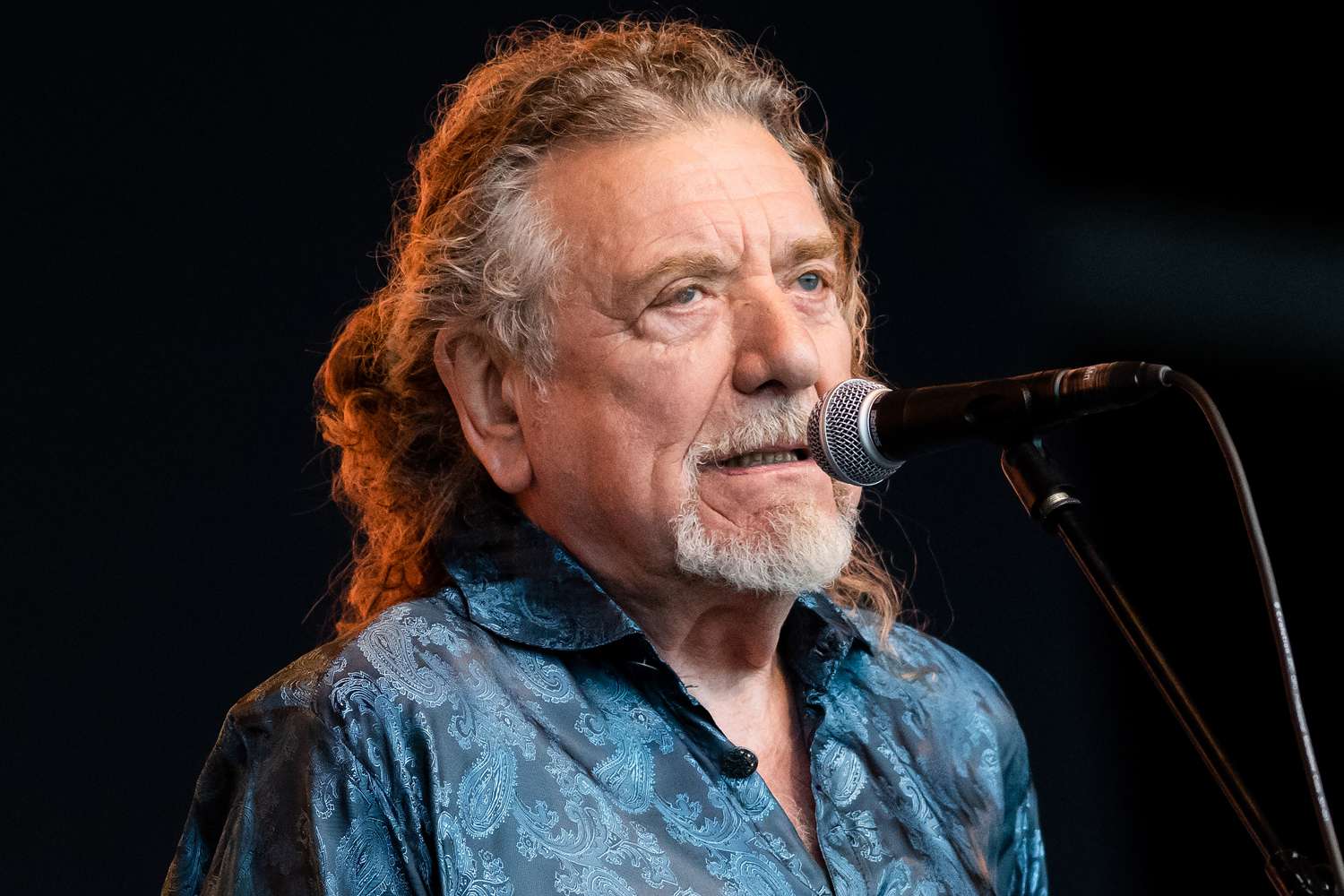
Robert Plant on Led Zeppelin, Alison Krauss and his endless
our series where great musicians tell the stories behind memorable records from their back catalogue, the Led Zep frontman discusses his enduring love for Patty Griffin and why he’s happiest in the land of cider, Wolves and Welsh mythology
“I’m 17, full of myself, in a youth club with Noddy Holder …” It’s a warm-boned autumn afternoon in London’s Primrose Hill, and Robert Plant, 69, is luminous as a cartoon lion, a Soul Jazz records T-shirt tight over his belly, his golden mane winking in a dimly lit local French restaurant. Carry Fire, his 11th solo album (24th if you count collaborations and Led Zeppelin LPs) is just out, and with a little judicious nudging – Plant generally dislikes nostalgia – he’s looking back. We are somewhere in the West Midlands in 1966. “We’d borrow Noddy’s dad’s window-cleaning van for our gear, buckets clanking through the Black Country streets, so to have a record that was going to be pressed, have a dust sleeve – it was showing-off time.” He rears up. “‘Well, we’ve got this deal with CBS, Noddy.’ And Noddy goes: ‘That’s all right, we’ve got one with Columbia.’ And then I found out it was the same bloody song!”The track, originally recorded by US band the Young Rascals as You Better Run, was the first commercial release for both the N’Betweens (who became Holder’s band Slade) and Listen, whose singer was Plant, although the label asked him to record their first single on his own. It was his first studio experience. “I still remember the pride and the thrill and the smell of fear; to walk in a studio and see session guys booked for me to sing. I was very, very nervous.” He did not appreciate how good a time it was for music then, he adds, and he still loves freakbeat bands: the Poets, Faron’s Flamingos and the Birds (who counted Ronnie Wood as a member) were among his favourites. “And here I was in the middle of it all, trying to create a style, looking at black soul singers and my heroes like Steve Marriott.” He still hears that nascent howl on Led Zeppelin’s debut three years later, too. “That nasal boy. It’s kind of cute now.”
The track, originally recorded by US band the Young Rascals as You Better Run, was the first commercial release for both the N’Betweens (who became Holder’s band Slade) and Listen, whose singer was Plant, although the label asked him to record their first single on his own. It was his first studio experience. “I still remember the pride and the thrill and the smell of fear; to walk in a studio and see session guys booked for me to sing. I was very, very nervous.” He did not appreciate how good a time it was for music then, he adds, and he still loves freakbeat bands: the Poets, Faron’s Flamingos and the Birds (who counted Ronnie Wood as a member) were among his favourites. “And here I was in the middle of it all, trying to create a style, looking at black soul singers and my heroes like Steve Marriott.” He still hears that nascent howl on Led Zeppelin’s debut three years later, too. “That nasal boy. It’s kind of cute now.”
Friends was the first place where Plant’s interest in Asian, especially Indian, music started to shine through, although he’d first heard examples of it back in the Black Country. “My neighbours were Gujarati. Coming home, I would walk up the alley in-between our terraced houses, and turn left instead of right, and just sit on the lino with my neighbours, have a bowl of curry, listening to their music. At the top of the street, at the Fox and Dogs, there was Caribbean music, too: you’d hear Alton Ellis, the Skatalites, Delroy Wilson.” He is unapologetic about connecting with these sounds through his own music-making. “There’s something really splendid and otherworldly about trying to even touch those bigger ideas as a British rock group, to go past the idiom of singing about bars and chicks and all that crap, which unfortunately is the lingua franca of popular song. There are other dynamics of life, and we started to recognise that here.”
Robert Plant and Alison Krauss are returning to the road, two years after their Raise the Roof tour, for nearly 30 headline dates and counting. Beginning June 2 with a centennial celebration for the legendary Cain’s Ballroom, the Can’t Let Go Tour will see Plant, Krauss bring spellbinding vocal performances and uncanny arrangements to amphitheaters, pavilions, opera houses and other historic venues. With additional stops to still be revealed, dozens of cities will have the opportunity to experience the live show.
Tickets for Robert Plant & Alison Krauss’ Can’t Let Go Tour are on-sale at 10am local time this Friday, Feb 16, following a series of pre-sales beginning at 10am local time tomorrow, Feb. 14. Find more information at plantkrauss.com

Leave a Reply